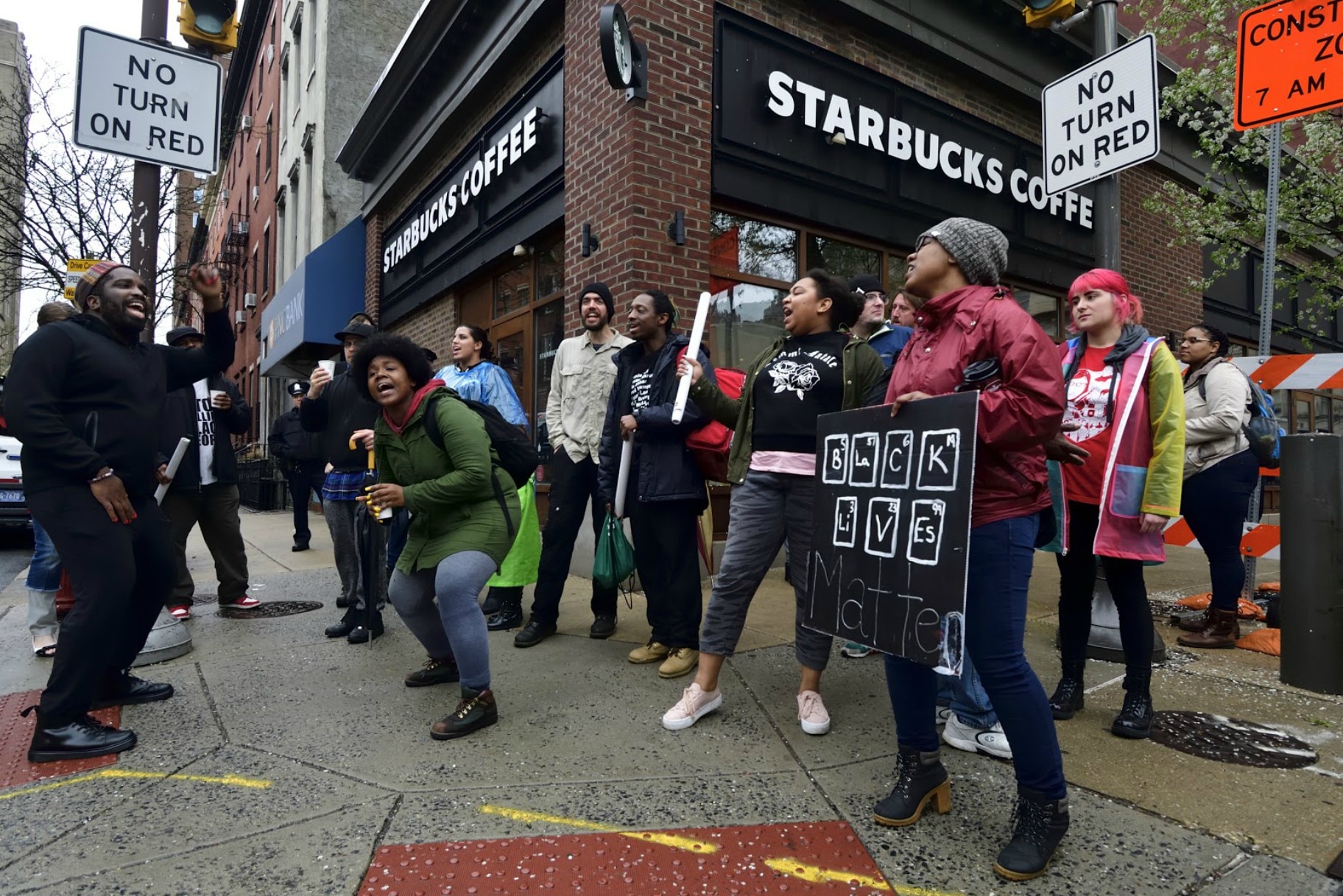Create a free profile to get unlimited access to exclusive videos, breaking news, sweepstakes, and more!
Can Starbucks Fix Its Image By Closing Down 8,000 Stores For Racial Bias Training?
Nearly 175,000 employees will take part in the training. Will it be enough to save their reputation?

Does Starbucks have a racism problem?
Two black men were arrested in a Philadelphia Starbucks last week after a manager reported them for trespassing, but eyewitnesses claim that they were waiting for a third party to arrive before ordering. Starbucks later issued an apology, but the damage had already been done — #BoycottStarbucks gained traction on Twitter and activists began protesting at Starbucks.
It’s only gotten worse. Another video has gone viral, depicting a black man being denied access to the bathroom at a California Starbucks.
The video, recorded in January, shows an employee refusing to give 26-year-old Brandon Ward the bathroom access code because he hadn’t bought anything. The clip then reveals that a white man was given the bathroom code without having to purchase anything.
Starbucks has not yet commented to ABC News on this incident.
Starbucks has responded to the recent backlash by announcing on Tuesday that 8,000 stores will close on the afternoon of May 29 while nearly 175,000 employees undergo racial bias training, CNN reports.
“Closing our stores for racial bias training is just one step in a journey that requires dedication from every level of our company and partnerships in our local communities,” said Starbucks CEO Kevin Johnson, who also has invited the two men Starbucks had arrested to speak with him directly.
Starbucks’ training program has been designed to “address implicit bias, promote conscious inclusion, prevent discrimination, and ensure everyone inside a Starbucks store feels safe and welcome.”
Racial bias is a type of implicit bias, referring to the attitudes or stereotypes an individual may have that affects their understanding, actions, and decisions in an unconscious manner, a report from the Kirwan Institute at Ohio State University explains. Implicit biases are something we all have, and they may not always line up with our beliefs. While someone can claim to be anti-racist, they may still hold negative beliefs about other racial groups — and that can manifest in their behaviors toward people belonging to that group.
Implicit biases aren’t set in stone, however. Just as stereotypes are learned, implicit biases can theoretically be unlearned, starting with self-awareness. From there, techniques like increasing interaction with other groups can help with unlearning, according to a Smithsonian.com researcher.
For Starbucks, the training won’t be a quick fix, but it does seem to be a step in the right direction.
(Photo: Protesters gather on April 16, 2018 for ongoing protest at the Starbucks location in Center City Philadelphia, PA where days earlier two black men were arrested. By Bastiaan Slabbers/NurPhoto via Getty Images)














